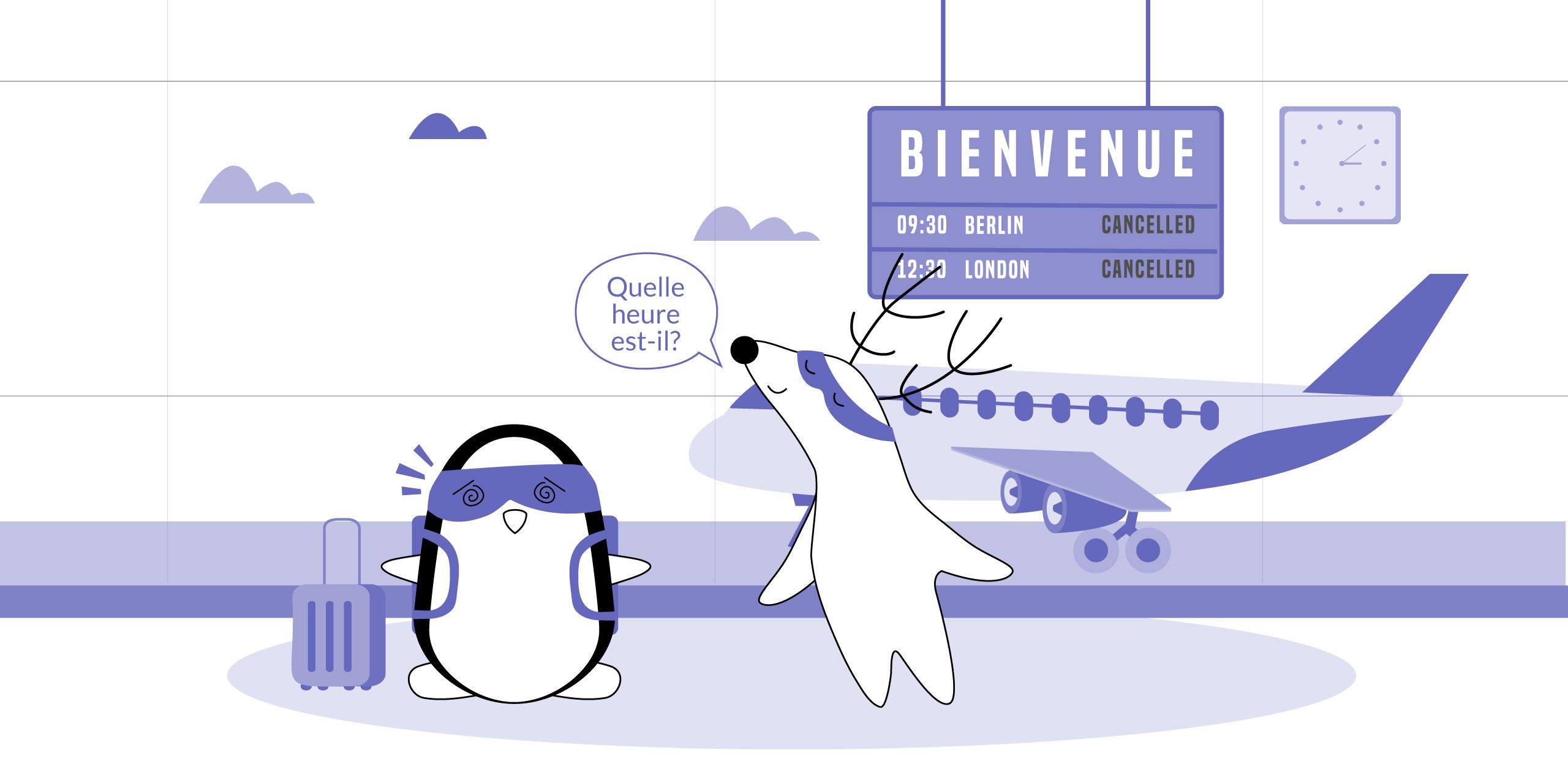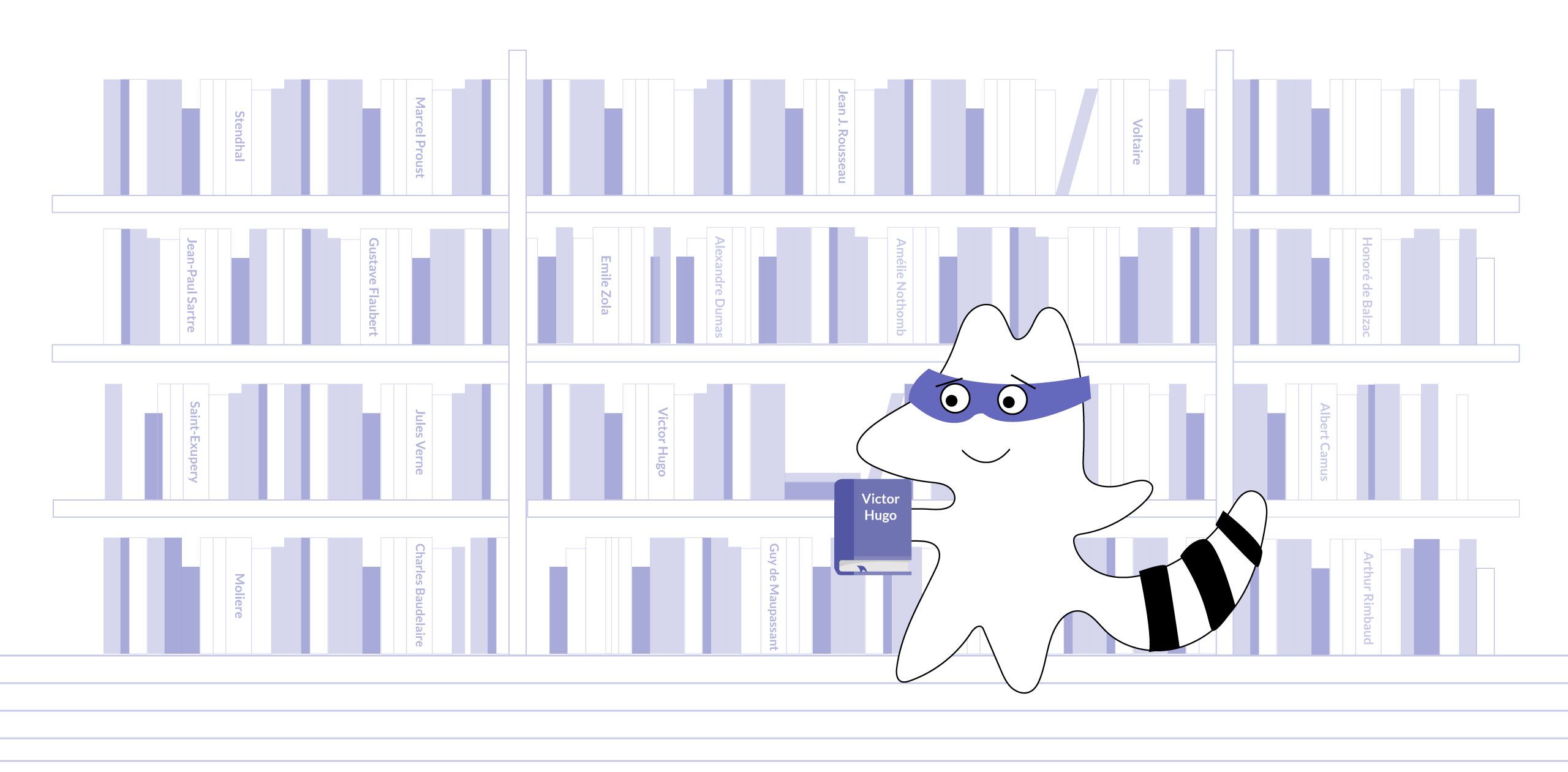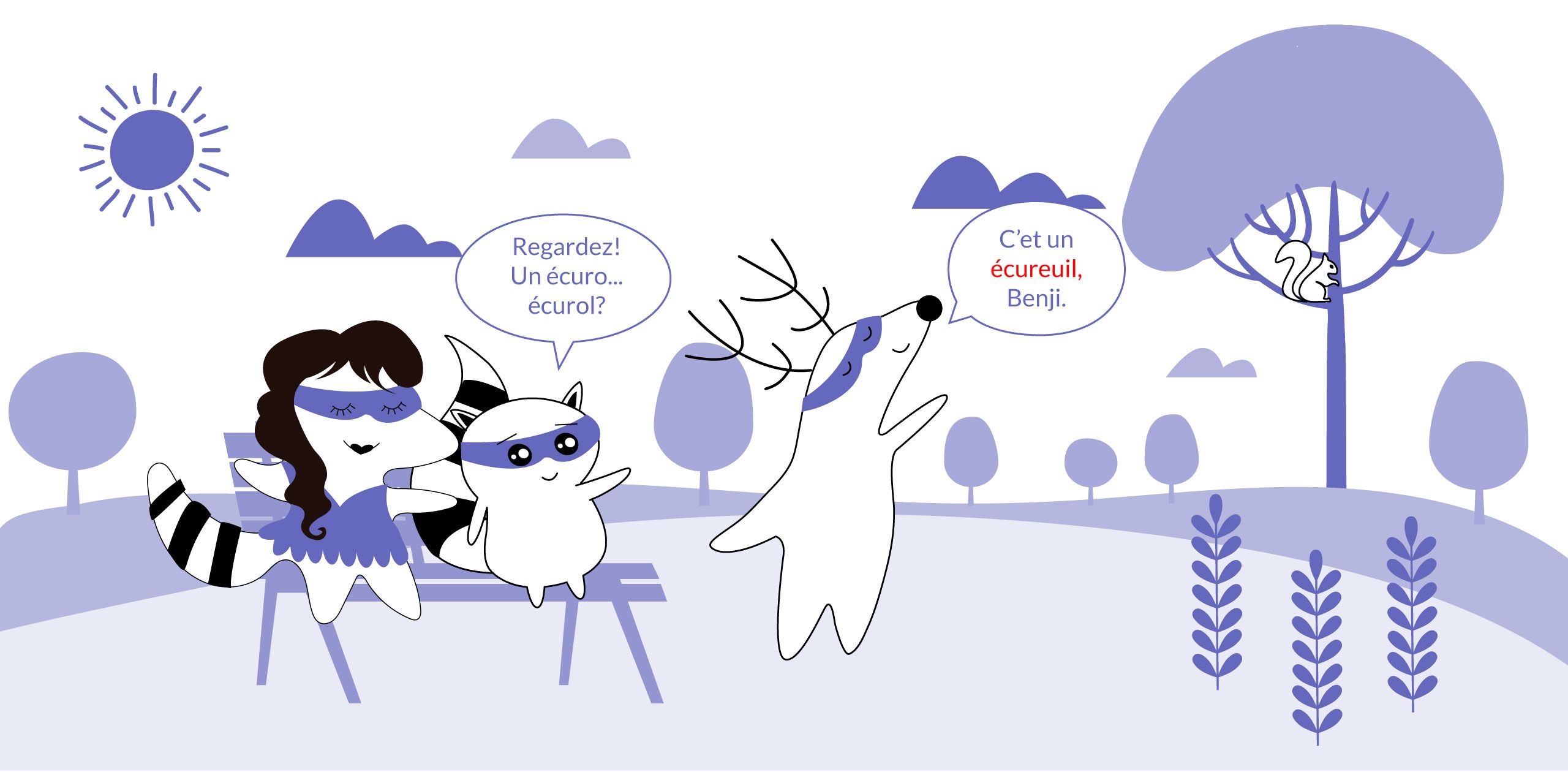
When it comes to learning a foreign language, French can be one of the most challenging out there. This is in part due to the fact that the French pronunciation is one of the hardest around – there are quite a few words that give people a lot of trouble.
These words are difficult to pronounce correctly even for native speakers, so you can imagine how challenging they might be for foreigners. Nevertheless, if you're looking to improve your vocabulary and take your French skills to the next level, it might be helpful to learn some of these hard French words.
In this blog post, let’s take a look at some of the most difficult words to pronounce – and give them a try. Trust us, even though they seem like quite the tongue twisters at first, after just some practice, you will be able to tackle them. See for yourself.
But First, How to Pronounce Difficult Words in the French Language?
Before moving on to the hardest words in the French language, let's take a quick look at some main pronunciation rules.
These are the main points many English speakers struggle with – but of course, there are a few more.
Silent Letters
First, there are silent letters – these are letters that are not pronounced when they appear in a word. These are:
- e at the end of the word – as in the word livre (book)
- p, g, n, m, s, t, d, x, z at the end of the word – like in the word chaud (hot)
- silent h at the beginning of the word – as in the word homme (man)
Nasal Vowels
Another thing to note is that French has nasal vowels – these are vowels that are pronounced with air coming out of your nose. Some examples of nasal vowels are letter combinations “an”, “en”, and “in”.
These might be quite a challenge for beginning language learners, but when dealing with them, remember that English also has its own nasal sounds: m, n, and ng. Try to say “sing” or “song,” pay attention to the feeling of air inside your mouth as you make that nasal sound, and try to feel that when pronouncing French nasal sounds.

Double L
The double l can also be tricky sometimes. Depending on the word, it will sound like /l/ or like /y/. It’s best to remember that in most cases, like when it comes after a or o, it will sound just like a regular /l/. When it comes after i, it sounds like /y/. You will need to learn the exceptions to this rule and pronounce all the remaining words with -ille using sound /y/.
Here’s a quick recap of the exceptions:
Native
Translation
ville
city
mille
a thousand
tranquille
calm
un million
a million
un milliard
a billion
Lille
a town in France
le bacille
a type of bacteria
Accents
Accents are also important to know when pronouncing French words. They indicate how the vowel is pronounced, and very often, depending on whether there’s an accent in the word or not, the same word can be said differently. Check the main accent pronunciation rules in our article.
Now that you’re aware of the necessary rules and ready for some pronunciation exercises, let’s take a look at some of the hardest French words:
Mille-feuille
Mille-feuille is a French dessert that literally translates to “a thousand leaves”. It is made out of layers of puff pastry with cream in between each layer.
The word mille-feuille is hard to pronounce because of the combination of -ille and -euil at the end, which we’ve already established as one of the hardest sounds in French. To make it even more interesting, it’s followed by the double l, pronounced as /y/.
Here’s an audio example – repeat it a few times:
Native
Translation
Mille-feuille
A French cake
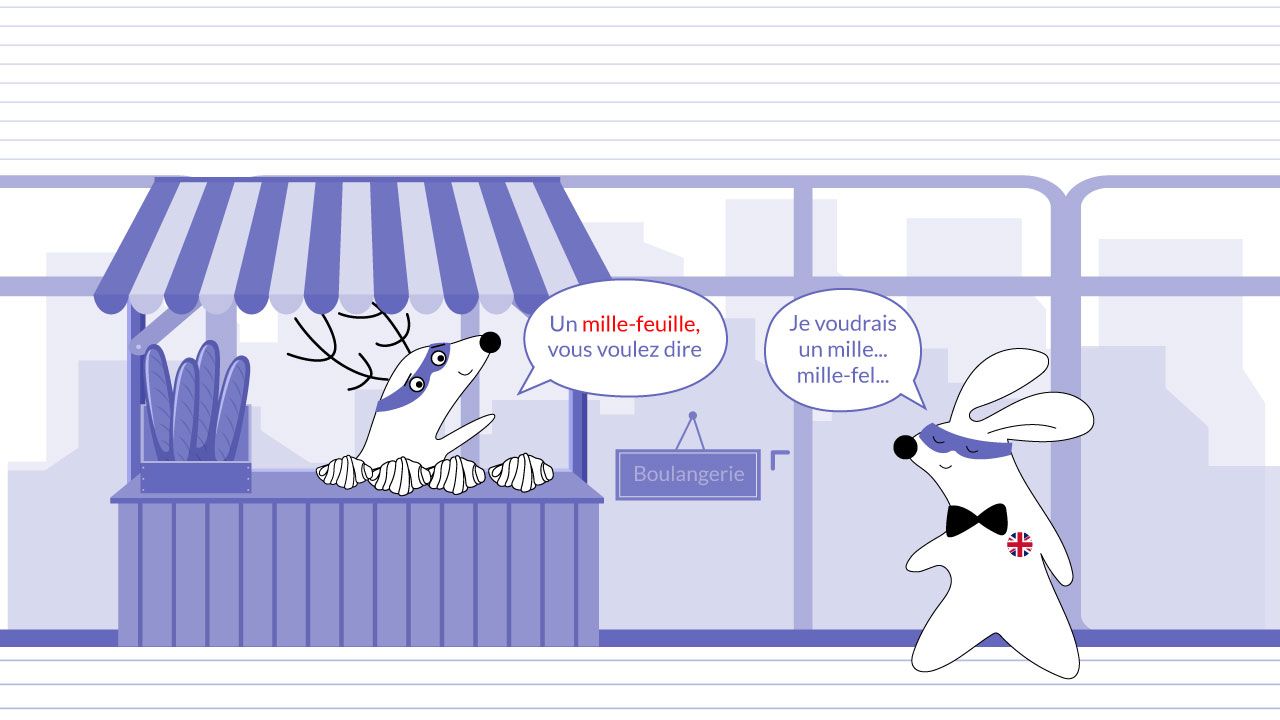
Yaourt
Yaourt is a French word for yogurt. It is pronounced similarly to the English word “yogurt”, with a slight difference in the ending sound. In French, it is pronounced /yaʊr/, with the stress on the first syllable – and this dreadful combination of vowels can make it sound terrible if you don’t say it right.
Don’t worry, though: repeat after the audio example:
Native
Translation
Yaourt
Yogurt
Rouen
Rouen is a city in northern France, on the River Seine. It is the capital of the region of Normandy. The word Rouen can be pretty hard to pronounce because of another vowel combination, -ouen. This is one of the hardest sounds in the whole French language, and many learners have no idea how to pronounce it: rouan, wran, roin, roan, rouen?
If you’re wondering, too, listen to this example:
Native
Translation
Rouen
A town in France
Serrurerie
Serrurerie is a French word for a locksmith. The amount of r’s in this word is impressive – and then you have a pesky french “u” in the middle.
Here’s an audio example to help you out. Try saying it out loud several times – and don’t worry if you’re struggling, this French word can cause quite a bit of trouble even for the native speakers.
Native
Translation
Serrurerie
Locksmith
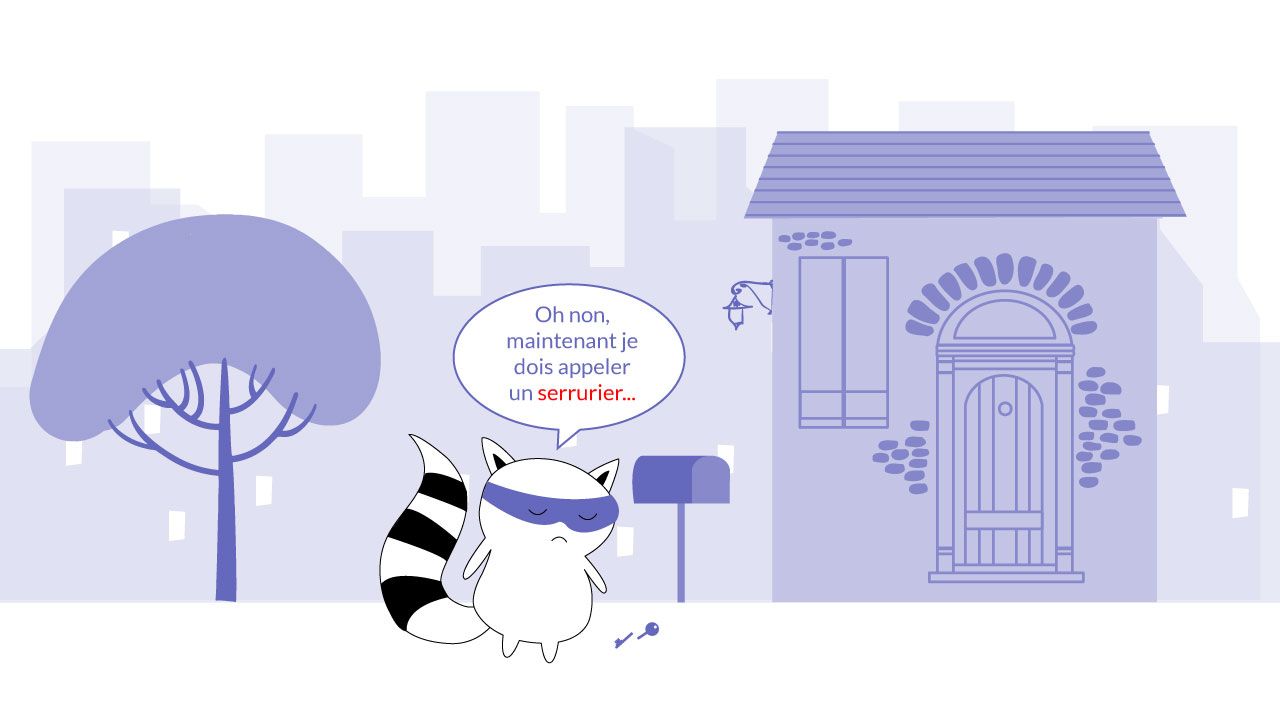
Fourrure
Another word with a horrific number of r's on our list – fourrure, which means "fur". It is not only the r's that make this word hard to pronounce. The French "u" in the middle can also be tricky, as it doesn't sound like the English "u" at all. Also, the vowel combination “ou”, pronounced like the English “oo”, does not make our lives easier.
Here’s an audio example:
Native
Translation
Fourrure
Fur
Purpurin
Purpurin is an organic compound that can be found in some plants. It has a purple color and is used as a dye and as a cosmetic.
This word is hard to pronounce because of the “ur” combination in the middle, which can be tricky for English speakers, as well as the nasal “in” at the end. Listen to the audio example to get it right:
Native
Translation
Purpurin
A type of red dye
Brouilly
Brouilly is a type of wine made in France. The word itself is not that hard to pronounce, as it only has one difficult sound – the “ill” combination at the end, which we’ve already covered. However, what makes this word hard is the fact that it is often mispronounced by foreigners, who don't know that the French "y" at the end is silent.
This is how you should say it:
Native
Translation
Brouilly
Light French red wine
Écureuil
The word écureuil is a French word for squirrel. It is hard to pronounce because of the letter combination “-euil” at the end. This is one of the hardest sounds in the whole French language, so here’s a quick tip for you to pronounce it: “-eui”l is the sound somewhen makes when they are exhausted, exasperated, or frustrated from speaking French.
Here’s an audio example for you to repeat it a few times, though:
Native
Translation
Écureuil
Squirrel
Vadrouiller
Vadrouiller is a French verb meaning "to roam around". It is hard to pronounce because of the consonant cluster “dr” **in the middle, which can be tricky for English speakers, as well as our favorite combination *“*ou” mixed with “-ill” – and a silent “r” at the end of the word, just to add a little spice.
Here’s an audio example to get it all:
Native
Translation
Vadrouiller
To roam around
Grenouille
Continuing the topic of the "oui” combination, here we have the word Grenouille, which means "frog". You might have come across it in French restaurants or recipes – after all, it’s a classic of French cuisine.
Just like with vadrouiller, the main difficulty here is the “-eui” sound at the end combined with the double “l”. Here’s an audio example to help you out:
Native
Translation
Grenouille
Frog
Bouilloire
Finishing the topic of the “-oui” combination, we have the word bouilloire, which means “a kettle”. It is also quite challenging to pronounce because of the “-ill-” combination in the middle, which can be tricky for English speakers. As well as the nasty ending “-oire”.
Don’t worry about saying it, though: repeat a few times after the example:
Native
Translation
Bouilloire
Kettle
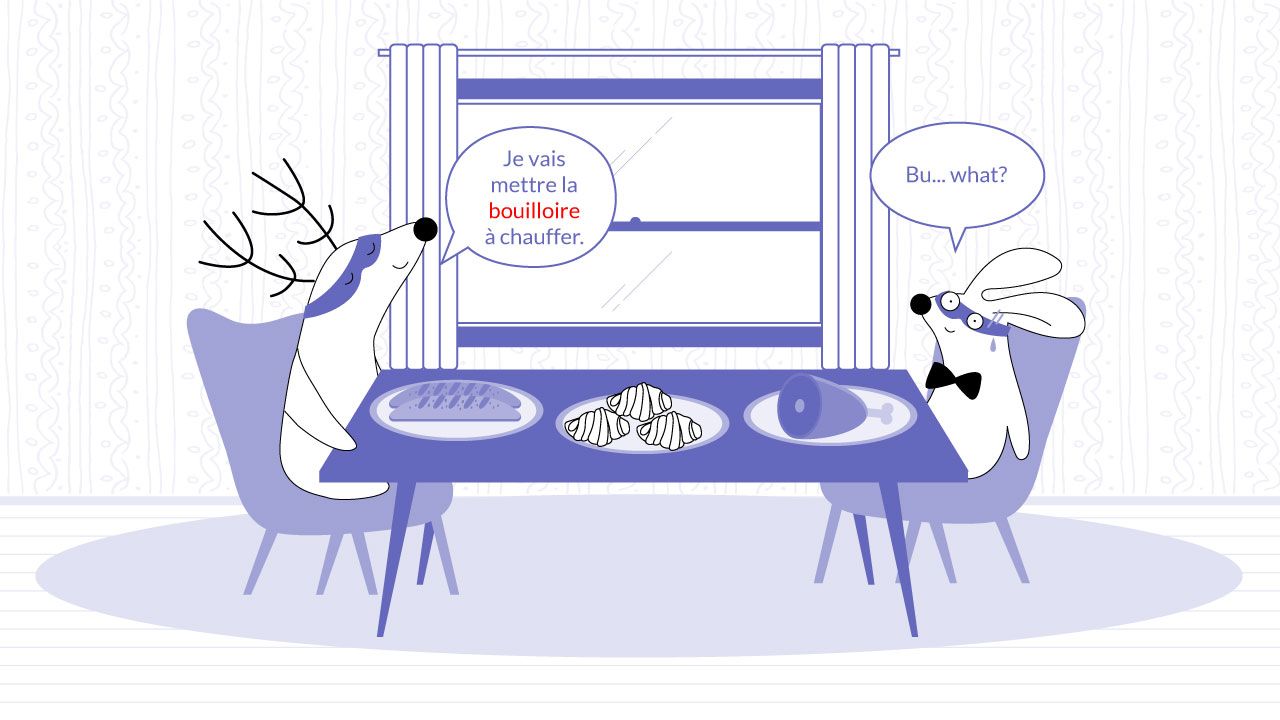
Pneu
Pneu (translated as tire) is a difficult word to pronounce because of the “-eu” sound in the end, which can be quite tricky. Nevertheless, compared to other words on our list, it is quite simple, so try saying it a few times:
Native
Translation
Pneu
Tyre
L'eau
L'eau is a French word for water. It might seem tricky to pronounce at first, but the thing is that the French "eau" is actually pronounced like the English "o". So, if you're not careful, you might end up saying something completely different – don’t mix it up with the strange French “o” or “eu” sounds.
Here’s how it should be pronounced:
Native
Translation
L'eau
Water
Oignon
Oignon is a French word for onion. It is hard to pronounce because of the “-gn-” in the middle, which is a sound that doesn't exist in English, and is much closer to the Spanish ñ. At the end, we also have a nasal vowel on.
All that makes the word sound like [oñong] – here’s an audio example for you:
Native
Translation
Oignon
Onion
Inébranlablement
Finally, a longer word that many French learners struggle with – inébranlablement. As you can see by the ending “-ment”, it is an adverb, and it means “unbreakably”.
It is hard to pronounce due to its cumbersome length and a whole lot of difficult sounds in it, such as the nasal “-an-” sound, several “l’s”, placed in very uncomfortable parts of the word, and the ending, which is also nasal.
Here's how you should say it:
Native
Translation
Inébranlablement
Unbreakably
Final Thoughts on Difficult French Words
Many non-native speakers can have problems with difficult French words. Although pronunciation can seem like the hardest thing about learning French, it’s nothing that practice won’t manage.
Take your time, listen to the audio examples, repeat the words a few times, and make sure to include them in your daily lessons. Create flashcards or download a language-learning app that can help you figure out the French word in context and work on the pronunciation.
Don’t forget – practice is key! The more you use these words and sounds in everyday conversation, the easier they will become. Incorporate them into your daily life, and you’ll see some great results in no time.







